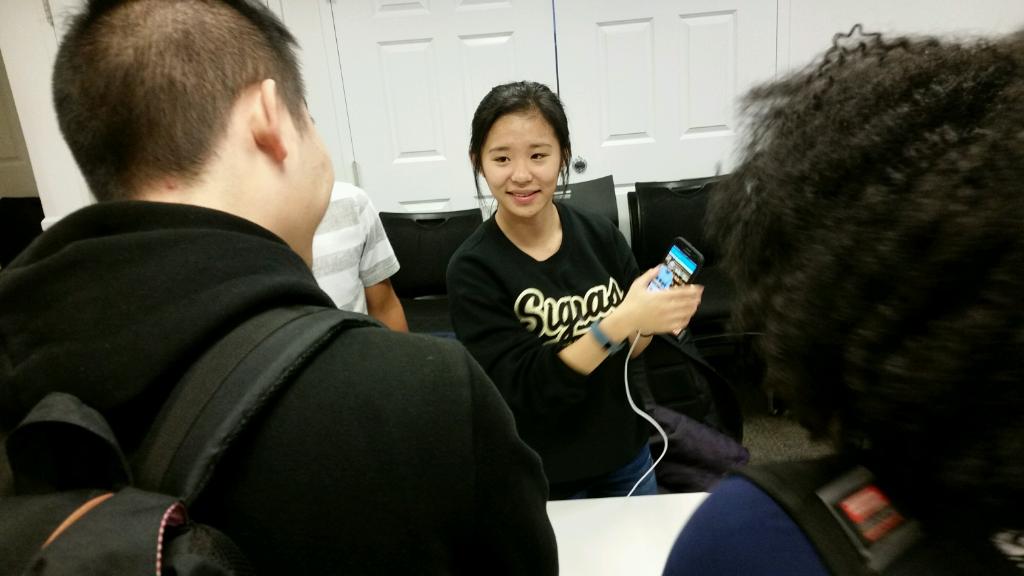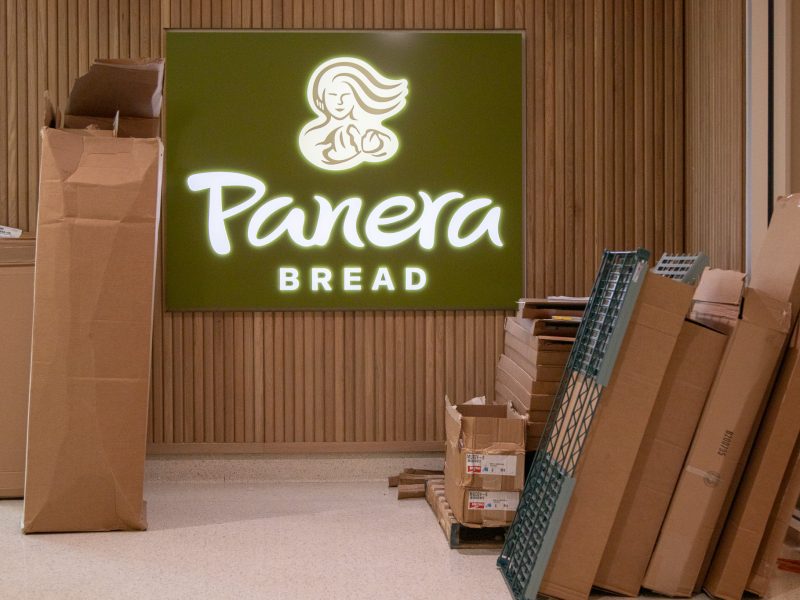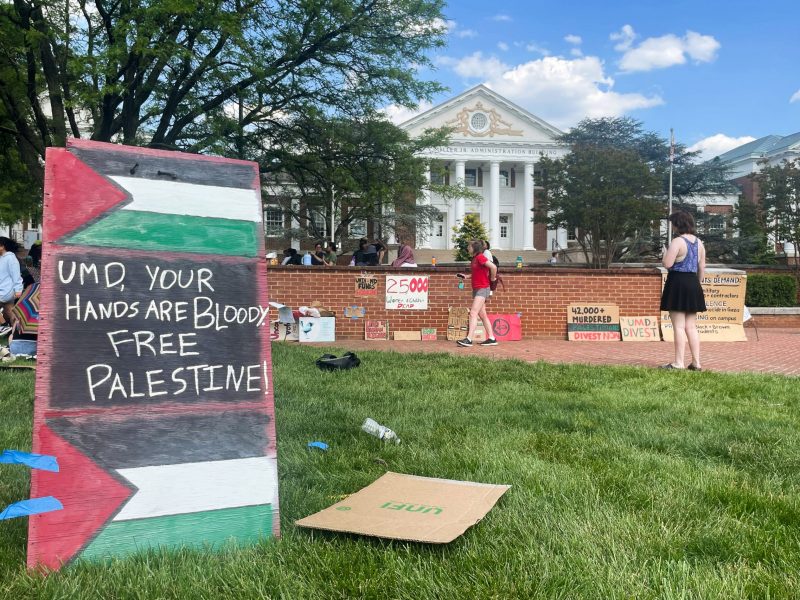By Zane Moses
For The Diamondback
From study aids to puzzle games, University of Maryland students demonstrated and tested self-made Android applications at the Android Demo Day on Thursday.
James Green, director of entrepreneurship education at the Maryland Technology Enterprise Institute, said the event gave student app developers a chance to receive comments and criticism from others to improve their projects and invited “any student on-campus [who] is interested in developing an Android app to come and share what they are doing with the campus community.”
The event filled a seminar room in Commons 2 to capacity and created a line that almost went out the door of the building. Most of those who came were part of a 1,500-student entrepreneurship class, Green said.
Attendees received a fake dollar bill they could give to any of the app developing teams as a symbolic investment, and the team that received the most won a Nexus tablet.
The student-made apps on display catered to a wide array of student interests. Tommy Outing, a sophomore computer science major, created a prototype of an app called Spots with his team that would connect students to fun and unique places on or around college campuses.
“The whole idea was inspired by one of our group members who took a trip to Georgetown and found this secluded spot under a bridge where you could watch the sunset over the harbor,” Outing said.
The app would direct students to localized, hidden spots around campuses categorized by mood, whether relaxed, romantic or adventurous, he said. The team is looking to partner with Google Maps and Facebook moving forward.
Charlie Dowd, a sophomore computer engineering major and another member of the team, said receiving criticism from other students is important.
“It is cool getting feedback from students,” Dowd said. “If they give constructive criticism or raise questions we didn’t think of before, I think that helps.”
In a similar trend of campus community building, Uday Misra, a sophomore finance and information systems major, and his team created Athena, an app for students to ask and answer educational questions on a college campus. Misra said it’s like Yik Yak, but for educational purposes.
“We were looking for a way where we could always have a study group available,” he said. “If we have a question that we don’t know is accurate, we can ask someone else no matter where we are.”
Other apps took a more philanthropic approach, like the one junior computer science and economics major Rebecca He presented. She and her team created an app that connects food donors with food charities. There was also Chris Walz, a senior computer science and finance major who showcased a full puzzle game he made.
“This was a great place to get a sense of if people liked it or not,” Walz said. “If people do like it, I think I’m going to make a version for iOS.”
Green said the event was an open invitation for any student to participate as an exhibitor or an audience member.
“We just let students know that if they were interested in seeing what other students are doing or if they were interested in meeting Android developers on-campus, that they were welcome to attend,” Green said.



